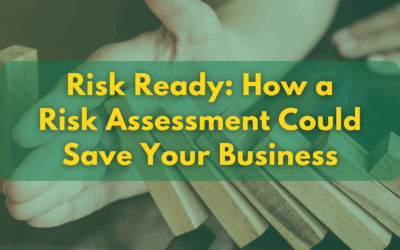Running a small business is full of challenges and uncertainties. However, one crucial risk management aspect that is often overlooked is insurance: with the right coverage, you can protect your assets, employees, and operations from unforeseen events. This quick guide covers the essentials of small business insurance and can help you make informed decisions on behalf of your business.
Understanding Small Business Insurance
Small business insurance policies cover various types of protection. Here are the main ones:
- General Liability Insurance: Covers legal costs and damages from third-party injuries or property damage caused by your business.
- Property Insurance: Protects your business property, including buildings, equipment, and inventory, from risks like fire, theft, and natural disasters.
- Business Interruption Insurance: Compensates for lost income and operational expenses if your business is temporarily halted due to a covered event.
- Workers’ Compensation Insurance: Provides benefits to employees injured or ill due to their job.
Assessing Your Insurance Needs
Every business is unique, and so are its insurance needs. Conduct a thorough risk assessment to identify potential risks specific to your business. Additionally, consider factors like your industry, location, workforce size, and asset value. These considerations will help you determine the types and amounts of coverage you need.
Choosing the Right Insurance Provider
Selecting the right insurance provider is crucial. First, look for providers with a strong reputation, financial stability, and experience with businesses like yours. Next, compare quotes and coverage options from multiple insurers to find the best fit for your needs and budget. An insurance broker can simplify this process and offer expert advice.
Understanding Policy Terms and Conditions
Insurance policies can be complex. Read and understand your policy documents to know what is covered and what isn’t. Pay attention to details like coverage limits, deductibles, and special provisions. Additionally, don’t hesitate to ask your insurance agent for clarification on any unclear aspects.
The Benefits of Comprehensive Coverage
Comprehensive insurance coverage provides peace of mind and financial security. Consequently, it allows you to focus on growing your business, knowing you are protected against potential risks. Adequate insurance can also enhance your credibility with clients, partners, and investors, showing you are a responsible business owner.
Navigating small business insurance may seem daunting, but it’s crucial for success. By understanding the basics, assessing your needs, choosing the right provider, and regularly reviewing your coverage, you can ensure your business is well-protected. Don’t leave your business’s future to chance—invest in the right insurance coverage today.
Questions on small business insurance or other risk management solutions? Contact (508) 824-8666 and ask to speak with Stephanie Rogers.
Learn more about FBinsure’s risk management solutions here: FB Risk Advisors – FBinsure
Share this post on LinkedIn: A Quick Guide to Small Business Insurance – LinkedIn



